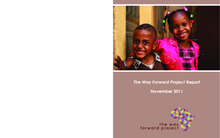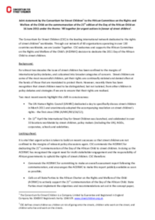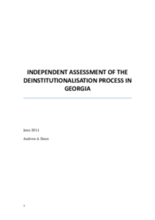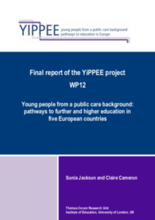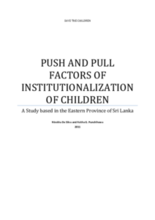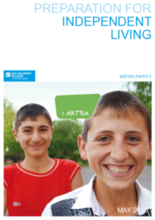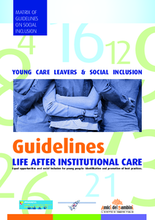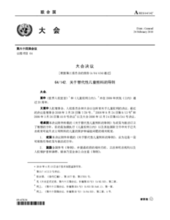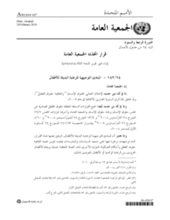Displaying 941 - 950 of 992
The Congressional Coalition on Adoption Institute’s The Way Forward Project brought together a group of international experts to discuss opportunities and challenges facing governmental and non-governmental organization leaders in six African nations (Ethiopia, Ghana, Kenya, Malawi, Rwanda, and Uganda) as they work to develop systems of care that serve children in and through their families.
The paper explores how the UNCRC reporting process, and guidelines from the Committee outlining how States should promote the rights of young people making the transition from care to adulthood, can be used as an instrument to track global patterns of change in policy and practice.
Joint statement by the Consortium for Street Children to the African Committee on the Rights and Welfare of the Child on Day of African Child Theme: All Together for Street Children
This independent assessment examined, specifically, the deinstitutionalisation of children in special education boarding schools and child care institutions in the Republic of Georgia.
The first comparative study of young people who have been in state care as children and their post-compulsory education, was undertaken by a team of cross-national researchers.
This research on the institutionalization of children in the Eastern Province of Sri Lanka was carried out by Save the Children with the support of the Department of Probation and Children Care Services and National Institute of Social Development.
The "I Matter Campaign" advocates for support for young people ageing out of care. The second edition of the "I Matter" briefing paper, published by SOS Children's Villages, focuses on young people's involvement in the campaign.
In response to the increased social exclusion affecting youth leaving care, Amici de Bambini developed Matrix of Guidelines for Life after Institutional Care, which can be used to increase the likelihood of social inclusion for young people who have been released from the child protection system.
The Guidelines for the Alternative Care of Children were endorsed by the United Nations General Assembly on 20th November 2009, in connection with the 20th anniversary of the UN Convention on the Rights of the Child.
The Guidelines for the Alternative Care of Children were endorsed by the United Nations General Assembly on 20th November 2009, in connection with the 20th anniversary of the UN Convention on the Rights of the Child. This momentous day marked a culmination of years of discussions and negotiations led by the Government of Brazil, in partnership with Group of Friends and civil society.

